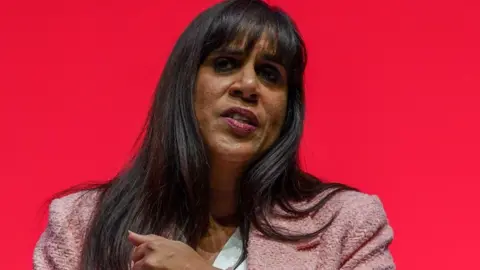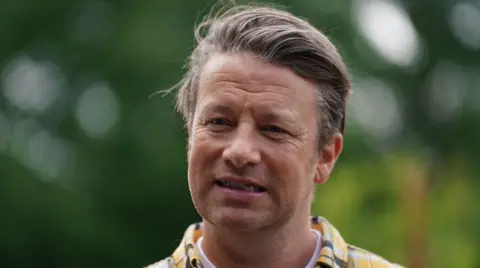MP backs Jamie Oliver dyslexia campaign
 Ian Forsyth/Getty Images
Ian Forsyth/Getty ImagesA former teacher turned MP has backed calls from Jamie Oliver to improve how schools identify and support children with dyslexia.
Two years after talking about his dyslexia on BBC Breakfast, Oliver has made a Channel 4 documentary calling for mandatory screening in schools and better training for teachers.
Wolverhampton North East Labour MP Sureena Brackenridge is among those to contribute to the programme.
A former science teacher, she admitted children "would have slipped through the net" during her 25 years in the profession, but added that the government "was listening".
Brackenridge, who is also on the Education Select Committee, said: "If they [children with dyslexia] can't read the question, then it's going to be really difficult for them to give their very best and be able to follow on, whether it's writing the essay, the answer.
"For me as a chemistry teacher, it was about the written side of chemistry, rather than the practical side, that many students were able to excel on."
 PA Media
PA MediaThe MP said part of the answer was "better teacher training, not an hour after a very busy school day".
Brackenridge added that there were some easy things that could be done in the classroom to make improvements for pupils with dyslexia, such as using a cream background on presentations, rather than white, and using certain fonts.
"It's not rocket science, but with a change in culture... we can do this," she said.
Oliver, whose Jamie's Dyslexia Revolution will be on Channel 4 from 21:00 BST, also meets Education Secretary Bridget Phillipson in the programme.
He said while ideas for teacher training were positive, what was less clear was how to support teachers already on the front line.
He also called for every primary school pupil to be screened for dyslexia.
"If we don't know who needs help, we can't deploy help and resource," he said.
The NHS said a person with dyslexia may:
- Read and write very slowly
- Confuse the order of letters in words
- Be confused by letters that look similar and write letters the wrong way round
- have poor or inconsistent spelling
- understand information when told verbally, but have difficulty with information that's written down
- find it hard to carry out a sequence of directions
- struggle with planning and organisation
But people with dyslexia "often have good skills in other areas", the NHS added.
Follow BBC Wolverhampton & Black Country on BBC Sounds, Facebook, X and Instagram.
